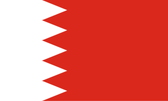
Call 0330 880 3600 Calls may be monitored or recorded. Opening Times.
- TRAVEL INSURANCE
- COVID-19 COVER
- More Options
- Help & Advice
- Existing Customers

Call 0330 880 3600 Calls may be monitored or recorded. Opening Times.

Need help?
UK Customer Services0330 880 3600*
Open Monday to Friday 9:00am to 6pm, Saturday 8:30am to 4pm and closed Sundays.
*Calls are recorded for training and quality purposes.

Official name: Kingdom of Bahrain
Capital city: Manama
Official language: Arabic (English widely spoken)
Population: Around 1.5 million
Currency: Bahraini dinar (BHD)
Time zone: GMT+3
Driving side: Right
Climate: Hot desert climate with humid summers and mild winters
Bahrain is a small Gulf island state linked to Saudi Arabia by the King Fahd Causeway. Once famous for pearl diving, it’s now a modern financial hub with a lively cultural and social scene. Visitors find a mix of Islamic heritage and contemporary development, from historic forts to skyscrapers.
An archipelago of over 30 islands, Bahrain is mostly low-lying desert with Jabal ad Dukhan as its highest point. Oil and gas remain its key resources, but investment has expanded into finance and tourism. Expect scorching, humid summers (June–September), mild winters, and occasional dust storms.
Manama is the gateway, with hotels, malls, and attractions such as Qal’at al-Bahrain (a UNESCO World Heritage site). Taxis and ride-hailing apps are common; insist on meters or agree fares in advance. Roads are modern, but driving can be erratic. Crime is low, though standard precautions are sensible. Avoid midday activities in summer due to extreme heat.
Most visitors, including British nationals, can apply for an eVisa online or obtain a visa on arrival for short stays (usually 14–30 days). Passports should be valid for at least six months on entry. GCC nationals often enter with just an ID card.
The Bahraini dinar (BHD) is pegged to the US dollar. Credit cards are widely accepted in hotels, restaurants, and malls; cash is useful for markets and smaller shops. ATMs are plentiful in cities. Banking runs Sunday–Thursday in line with the regional work week.
Healthcare is of a good standard, especially in Manama. No mandatory vaccinations, though hepatitis A, hepatitis B, typhoid, and rabies may be recommended depending on activities. Heat-related illness is the main risk — carry water, use sun protection, and avoid peak heat hours. Tap water is treated but bottled is generally preferred. Take out comprehensive travel insurance including medical cover.